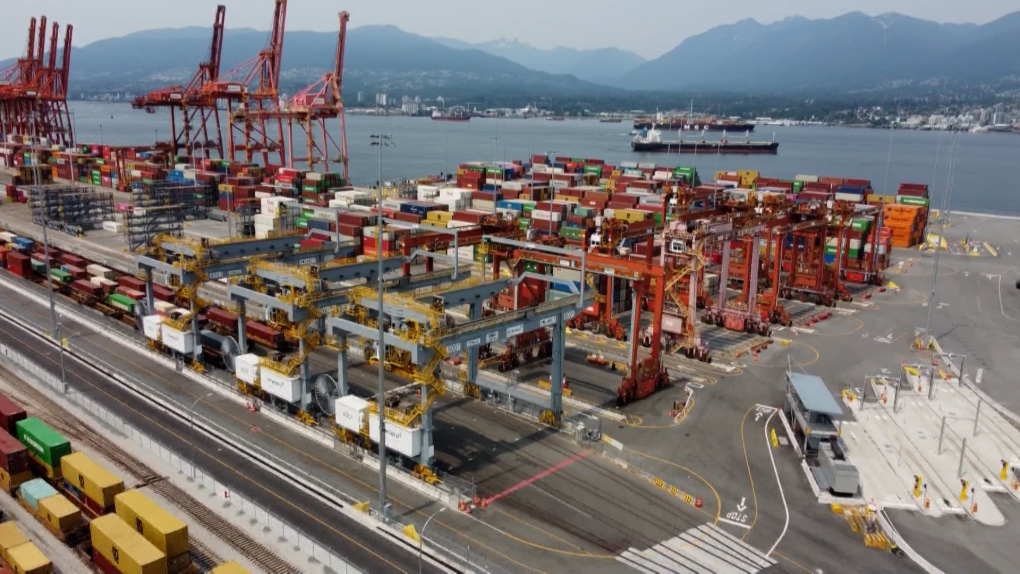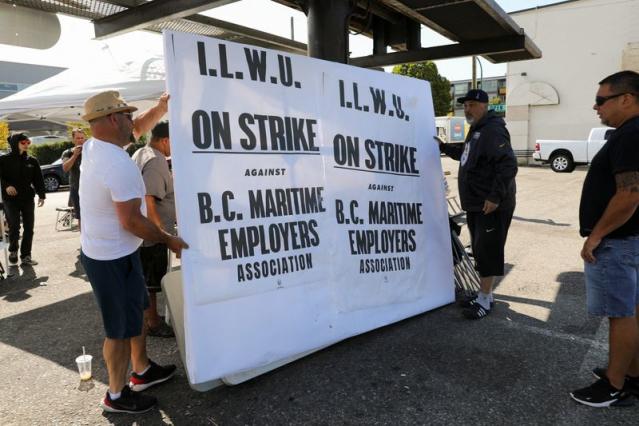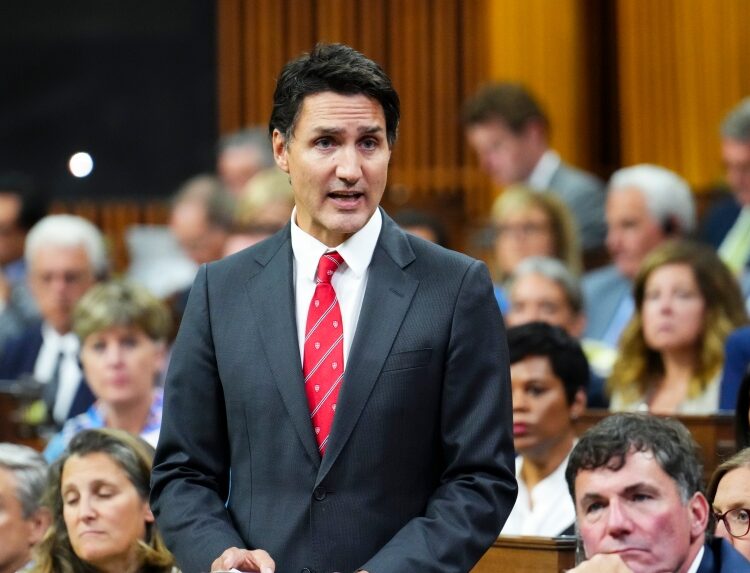The Vancouver Port workers strike that had threatened to cause harm to businesses has come to a conclusion as both sides came to a settlement. The International Longshore and Warehouse Union (ILWU), representing port workers, and the British Columbia Maritime Employers Association (BCMEA) reached an agreement on Thursday.
By DESIBUZZCanada Staff
VANCOUVER – The Vancouver Port workers strike that had threatened to cause harm to businesses has come to a conclusion as both sides came to a settlement.
The International Longshore and Warehouse Union (ILWU), representing port workers, and the British Columbia Maritime Employers Association (BCMEA) reached an agreement on Thursday.
The 13-day B.C. port strike ended with an agreement that came just 10 minutes before the 10:30 a.m. PT deadline for reviewing recommended settlement terms from a federal mediator.

The agreement still needs to be ratified by both sides, and no details about the terms have been made public, but a release from the B.C. Maritime Employers Association (BCMEA) said it hopes to return to normal operations soon.
“The BCMEA recognizes and regrets the significant impact this labour disruption has had on the economy, businesses, workers, customers, and, ultimately, all Canadians,” the statement said.
“We must collectively work together to not only restore cargo operations as quickly and safely as possible but to also rebuild the reputation of Canada’s largest gateway and ensure supply chain stability and resilience for the future.”

About 7,400 workers have been on strike since July 1, halting shipments in and out of about 30 ports in B.C., including Canada’s largest, the Port of Vancouver.
The Greater Vancouver Board of Trade says there are 63,000 shipping containers stuck on vessels waiting at B.C. ports to be unloaded, and that number may balloon to 245,000 if the strike persists to the end of July.
“British Columbia’s port workers are a critical link in Canada’s supply chain and make an outsized contribution to our country’s economy. I want to congratulate the members of the ILWU on reaching an agreement with the employer. This outcome shows once again that the collective bargaining process works and should be respected, and that through solidarity and good faith bargaining workers can secure the agreements they deserve,” NDP Transport Critic Taylor Bachrach said.

“From the start, my NDP colleagues and I have called on the Liberal government to support the collective bargaining process and reject the use of back-to-work legislation. In the past, successive Conservative and Liberal governments have been too quick to legislate workers back to work, which has served to undermine workers’ rights.
“Workers’ rights enshrined in Canada’s Constitution have enabled improved conditions for generations of working Canadians. The NDP continues to push to strengthen workers’ rights in Canada, including important legislation banning the use of replacement workers.”














